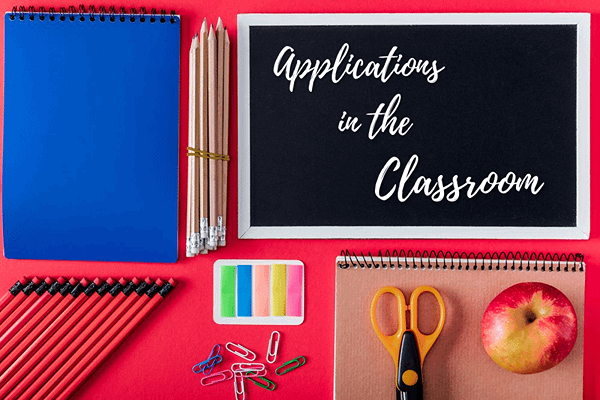What Is Educational Psychology? And How It Shapes Learning
Educational psychology is a specialized branch of psychology that focuses on understanding how people learn. It studies the processes involved in teaching and the overall impact of educational environments on learning outcomes.
This stem of education brings together insights from four key areas: psychology, pedagogy, cognitive science, and sociology. The goal is to address various aspects of the learning experience and ensure it is more accessible and productive for students. Considering all these aspects makes educational phycology an important field to study so that we can shape educational practices for the better.
The Scope of Educational Psychology
Educational psychology seeks to understand the dynamics between students, teachers, and the learning environment. It also explores the social-emotional context of learning.
Here are some key areas educational psychology focuses on:
- Learning Processes: Investigating how individuals acquire, process, and retain knowledge.
- Cognitive Development: Exploring how age, maturity, and brain development impact learning capabilities.
- Motivation and Engagement: Understanding the factors that inspire students to learn and persist through challenges.
- Assessment and Evaluation: Developing methods to measure learning outcomes and improve teaching effectiveness.
- Classroom Management and Behavior: Addressing the psychological techniques to maintain a conducive learning environment.
- Special Education: Examining strategies to support students with diverse learning needs, such as those with disabilities.
Key Theories in Educational Psychology
Educational psychology is built upon various foundational theories that explain different aspects of learning.
These include:
- Behaviorism: Focused on observable behavior, behaviorists like B.F. Skinner and John Watson emphasized that learning is a result of conditioning and reinforcement. Educational psychology applies these principles to classroom management, instructional design, and behavior modification.
- Cognitivism: Developed as a response to behaviorism, cognitivism emphasizes mental processes like memory, perception, and problem-solving. Jean Piaget’s stages of cognitive development and Lev Vygotsky’s social development theory are central to this approach. These theories highlight how children think, reason, and interact with their environment, shaping how educators approach curriculum design.
- Constructivism: Based on the idea that learners actively construct their own understanding of the world, constructivist theories—especially those from Piaget and Vygotsky—inform student-centered learning approaches. Constructivist educators encourage exploration and active learning, promoting critical thinking and problem-solving.
- Social Learning Theory: Albert Bandura’s theory emphasizes that learning occurs through observation, imitation, and modeling. Educational psychologists apply this theory in understanding peer interactions and the influence of role models within learning environments.
- Humanistic Approach: Influenced by Carl Rogers and Abraham Maslow, humanistic psychology focuses on the individual’s potential for growth and self-actualization. In the classroom, this translates into fostering a positive, supportive environment where students feel safe to explore and grow.
The Role of an Educational Psychologist
Educational psychologists work in various settings such as schools, universities, research institutions, and government agencies.
Their roles can include:
- Conducting Research: They study how different teaching methods, technologies, or curricula impact learning. This research informs the development of evidence-based practices in education.
- Designing Interventions: They create programs or strategies to help students who struggle with learning, behavioral issues, or emotional challenges, often collaborating with teachers, parents, and school counselors.
- Assessing and Evaluating: Educational psychologists develop standardized tests and assessments to measure student progress, teacher effectiveness, and program outcomes. They also interpret these results to suggest improvements.
- Supporting Diverse Learners: They provide insights into how to cater to students with unique learning needs, such as children with ADHD, autism, or learning disabilities, ensuring these students receive equitable education.
Applications in the Classroom

The insights gathered from educational psychology play a crucial role in shaping modern educational practices.
Some applications include:
- Differentiated Instruction: Recognizing that students learn at different paces and in different ways, educators can tailor their instruction to meet individual needs. Educational psychology provides strategies for modifying lessons, assessments, and assignments to accommodate varying abilities.
- Formative and Summative Assessments: Assessment techniques drawn from educational psychology help teachers understand how well students are grasping material. Formative assessments (ongoing assessments during instruction) allow for immediate feedback and adjustments, while summative assessments (end-of-term exams or projects) measure overall achievement.
- Motivation Techniques: Understanding what motivates students—whether intrinsic or extrinsic—helps teachers design lessons that engage learners. Educational psychologists have developed models for enhancing student motivation, including goal setting, providing positive reinforcement, and creating a sense of autonomy in the classroom.
- Classroom Management: Effective classroom management strategies rooted in behavioral psychology, such as positive reinforcement and establishing clear expectations, create a structured and supportive learning environment. This helps minimize disruptions and keeps students focused.
The Importance of Cultural and Social Contexts
Modern educational psychology increasingly emphasizes the influence of cultural, social, and familial contexts on learning. Factors such as socioeconomic status, language barriers, and home environment significantly affect students’ performance and psychological well-being. Educational psychologists examine these variables to address achievement gaps and to create inclusive educational practices that benefit all students.
Educational Psychology & Digital Learning
With the rise of technology in education, educational psychology now also explores the impact of digital learning environments.
Educational psychologists study:
- E-Learning and Digital Platforms: Understanding how students interact with online resources, digital tools, and virtual classrooms to optimize these technologies for effective learning.
- Gamification and Motivation: Exploring how game elements, like rewards and challenges, can motivate learners in digital environments.
- Technology and Cognitive Load: Balancing the use of technology to enhance learning without overwhelming students or causing cognitive overload.
Conclusion
Educational psychology is a dynamic field that continues to evolve alongside advances in technology, neuroscience, and pedagogy. By studying how people learn and applying psychological principles to education, educational psychologists play a vital role in improving both the quality of education and the experiences of learners.
From supporting teachers in their practice and developing more effective learning strategies, to creating inclusive policies for physical schools or online, educational psychology remains at the forefront of shaping the future of education.
This discipline not only benefits educators but also helps parents and policymakers understand the nuances of learning and development. In the end, this can only buture a more well-rounded approach to education that is mindful of both individual and collective needs.




